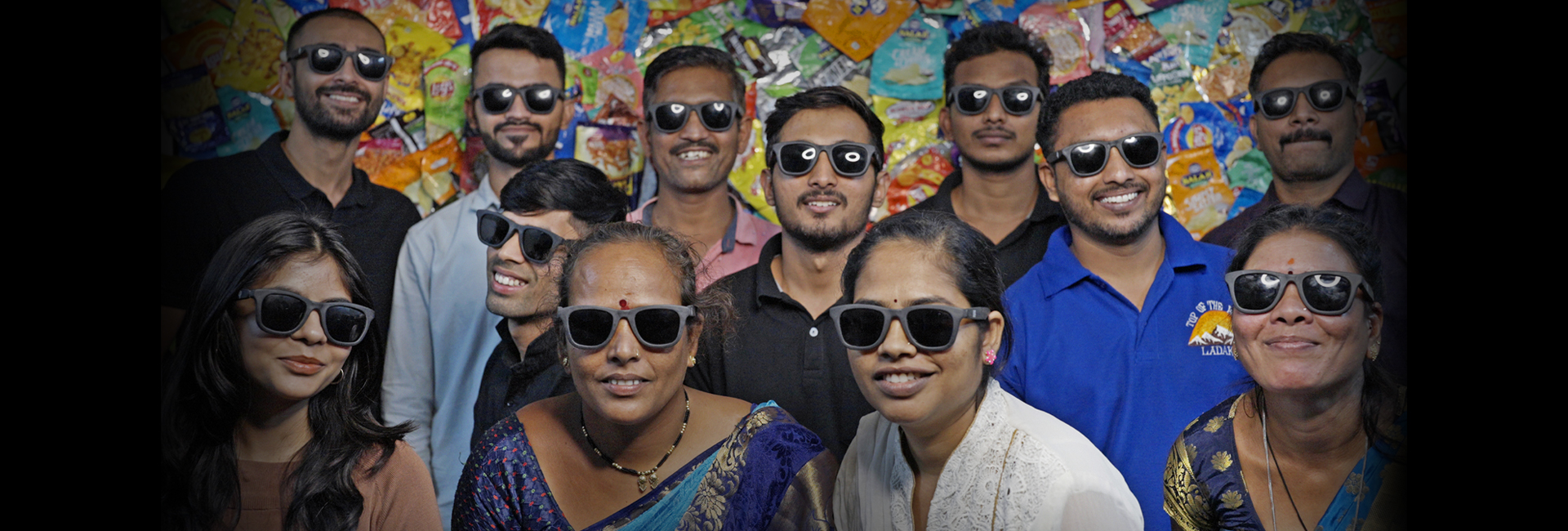(April 14, 2023) “This has been the hardest thing I have ever been a part of. Finally, presenting the world’s first recycled sunglasses made from packets of chips, right here in India,” tweeted Anish Malpani, the founder of Ashaya. In no time, the tweet went viral, and within six days, 500 pieces of these sunglasses were sold in the pilot phase. Working with multi-layered plastic (MLP), which is the least recycled plastic globally, has been one of the hardest things Anish has ever done. “The recycling of emptied packets of chips is almost zero globally, and since you don’t make money, no one wants to work in this space. That was essentially the reason I jumped into MLP,” Anish tells Global Indian. It was the plastic waste and the difficult conditions faced by waste pickers in India that prompted the entrepreneur to start Ashaya, a social enterprise, in 2020.
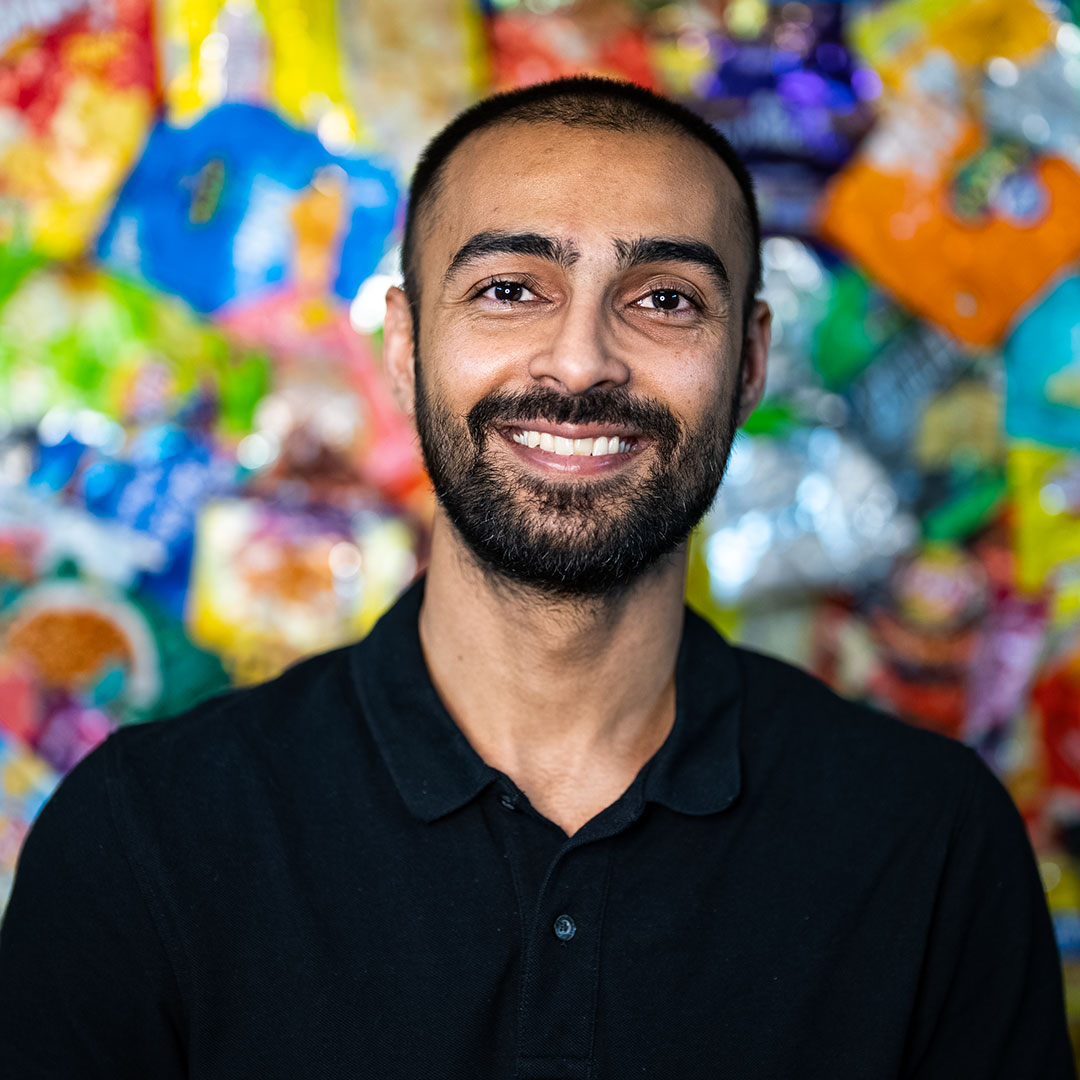
Anish Malpani, the founder of Ashaya
“In India, the waste problem is not just the kachra problem, you have 1.5 to 4 million waste pickers who live multi-dimensionally poor lives. They have low income and have no access to education or healthcare,” says the entrepreneur, adding that waste is a resource and he wants to increase the value of waste through his startup.
Having lived two decades of his life in Dubai and the US, returning to India to work on poverty alleviation was challenging for the entrepreneur. However, the 34-year-old was determined to make a positive impact and soon identified waste as a recurrent problem that needed attention. “With MLP, we realised that there is not enough technology that’s working fundamentally on increasing the value of waste, along with helping empower waste pickers. And that’s the key for everything that we do,” he says.
Existential crisis led to epiphany
Born in Aurangabad, Anish moved to Dubai at the age of nine with his family, owing to his dad’s job. After spending his formative years in the UAE, he moved to the US for his undergrad in finance and sports management from the University of Texas at Austin. “Shortly, I fell into the rat race.” A career in finance kicked off and soon, he climbed the corporate ladder, becoming the youngest director of finance in the company at 26. But something was missing. “While they had applied for my green card and while I was making good money, I also wondered if there was any point of working hard as the environment was becoming toxic and I was becoming a worse person. People didn’t understand why I was depressed because on paper I have everything. How dare I complain? But the best thing that happened was, it gave me a chance to reflect and understand the meaning of life.”
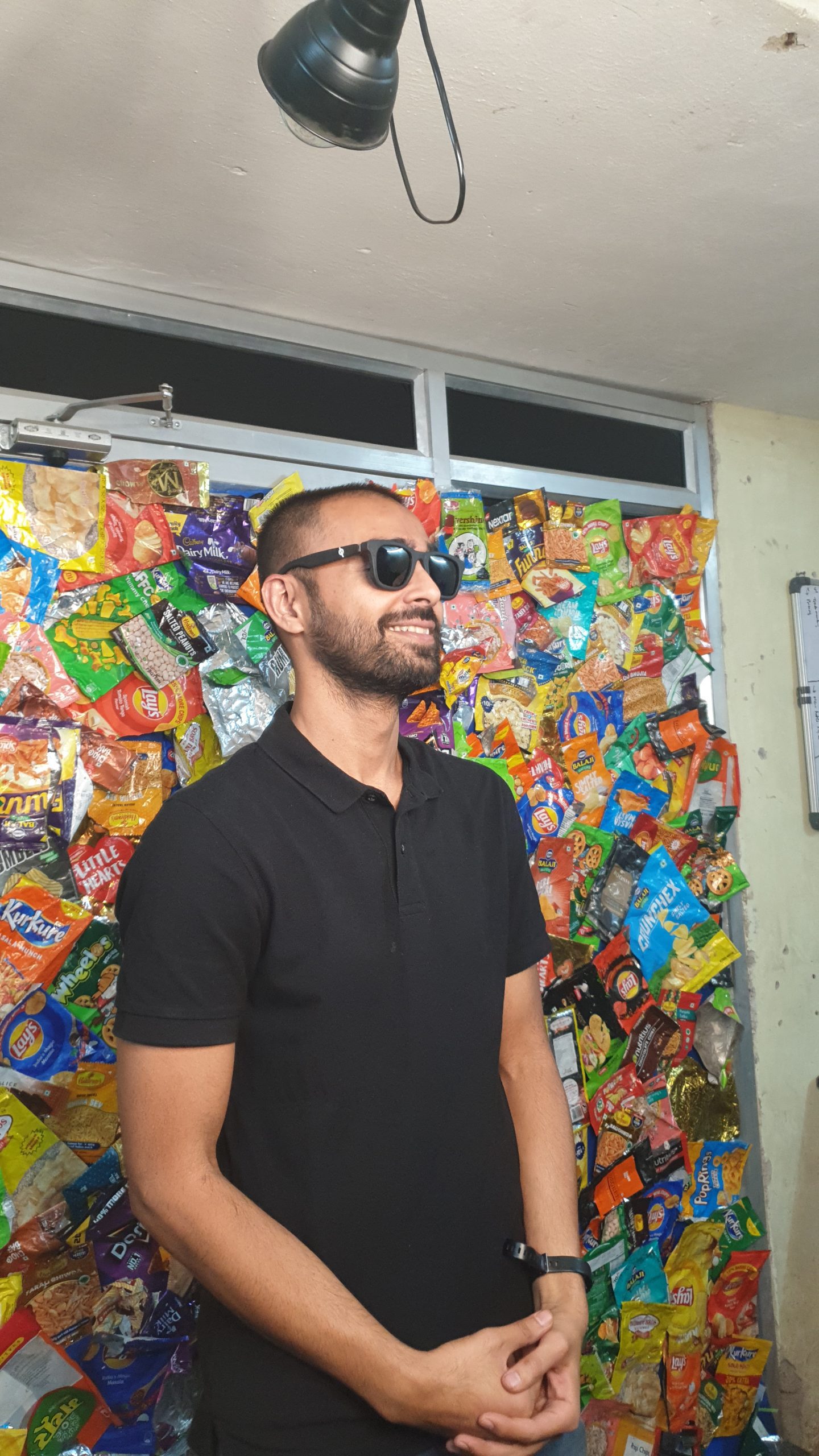
However, he didn’t take the leap of faith overnight. For Anish, it was a process. From finding the support system in his parents to getting the right exposure to what he wanted to do next, he took calculated risks. “I knew I wanted to go back to India and work on poverty alleviation through social enterprise.” But at the same time, Anish was aware that he hadn’t been to India in two decades and he “didn’t want to be this guy from New York who knows everything.” He laid out a plan – to spend six months in South America, the next six months in Africa, and the next six months in South East Asia before starting up in India.
On road to learning and self-discovery
“The goal was to work with the local entrepreneurs and learn by doing. I bartered my skills in finance in exchange for an opportunity.” He kickstarted the journey in Guatemala, with a nonprofit that accelerates or incubates local social entrepreneurs. “Six months turned into fifteen months. I had just begun making an impact; however, I wasn’t going deep enough. That’s when I decided to do Sub-Saharan Africa because statistically, it struggles the most.” This took him to Kenya where he worked with two entrepreneurs on a deeper level and knew that he was ready to take the plunge and start his work in India.
While he returned to India after decades, knowing he wanted to work on poverty alleviation, he knew nothing about poverty in India. He began with some research on “finding the poor of India – what their demographics are.” He adds, “I wanted to look at poverty from a multidimensional lens. Not restricting it to the definition – living below $1.90 a day but also take into consideration access to income, healthcare, and education.”
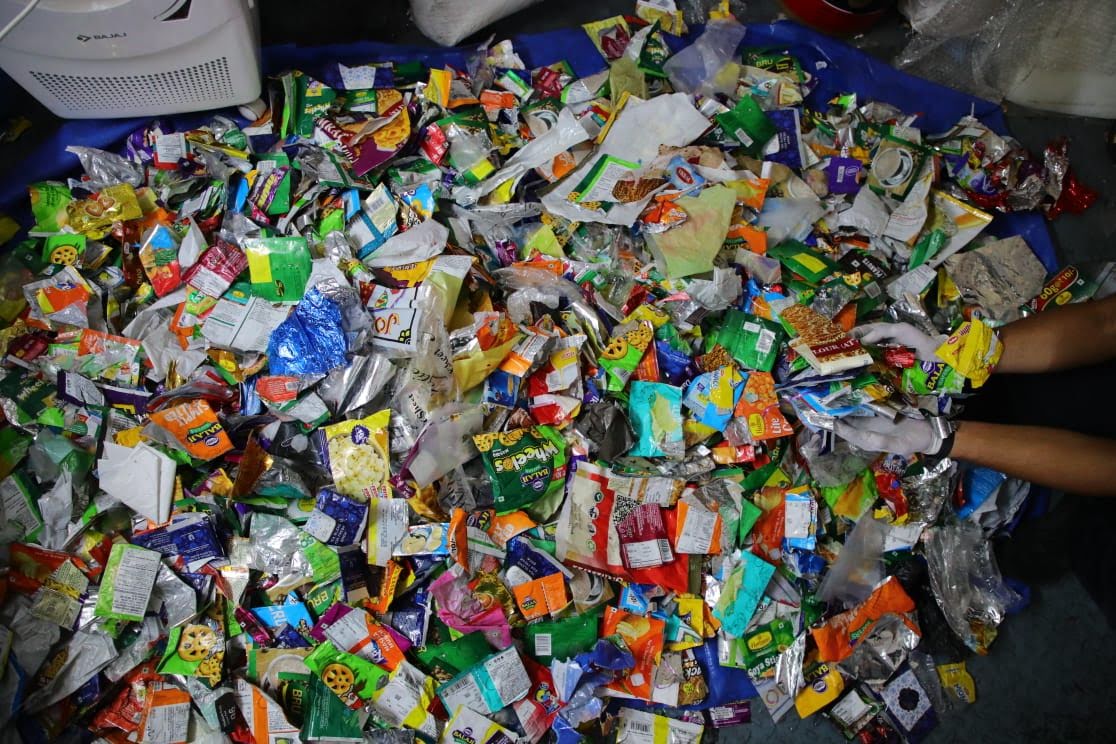
Multi-layered plastic
Recycling and empowerment
The research presented to him the waste management space, which attracted him for two reasons. “Firstly, 1.5 million waste pickers who are living very multi-dimensionally poor lives. Secondly, there is the untapped potential in waste. I started focusing on how to fundamentally increase the value of waste and do that to empower waste-pickers out of poverty,” says the entrepreneur, who while digging deep into the problem found that multi-layered packaging is a “notorious issue.” This intrigued Anish enough to find a way to work with MLP, which gave birth to Ashaya in 2020 to produce high-quality products from MLP. Ask him about MLP, and he produces a packet of chips showing a metal layer inside and two-three layers of packaging outside. “It’s called MLP as each layer has a purpose – some protect it from oxidisation, some from sun and some help in preservation for a long time.”
However, it wasn’t an easy journey and Anish faced many challenges on the go – from being ridiculed to scepticism about credibility to finding the right team. But he persevered.
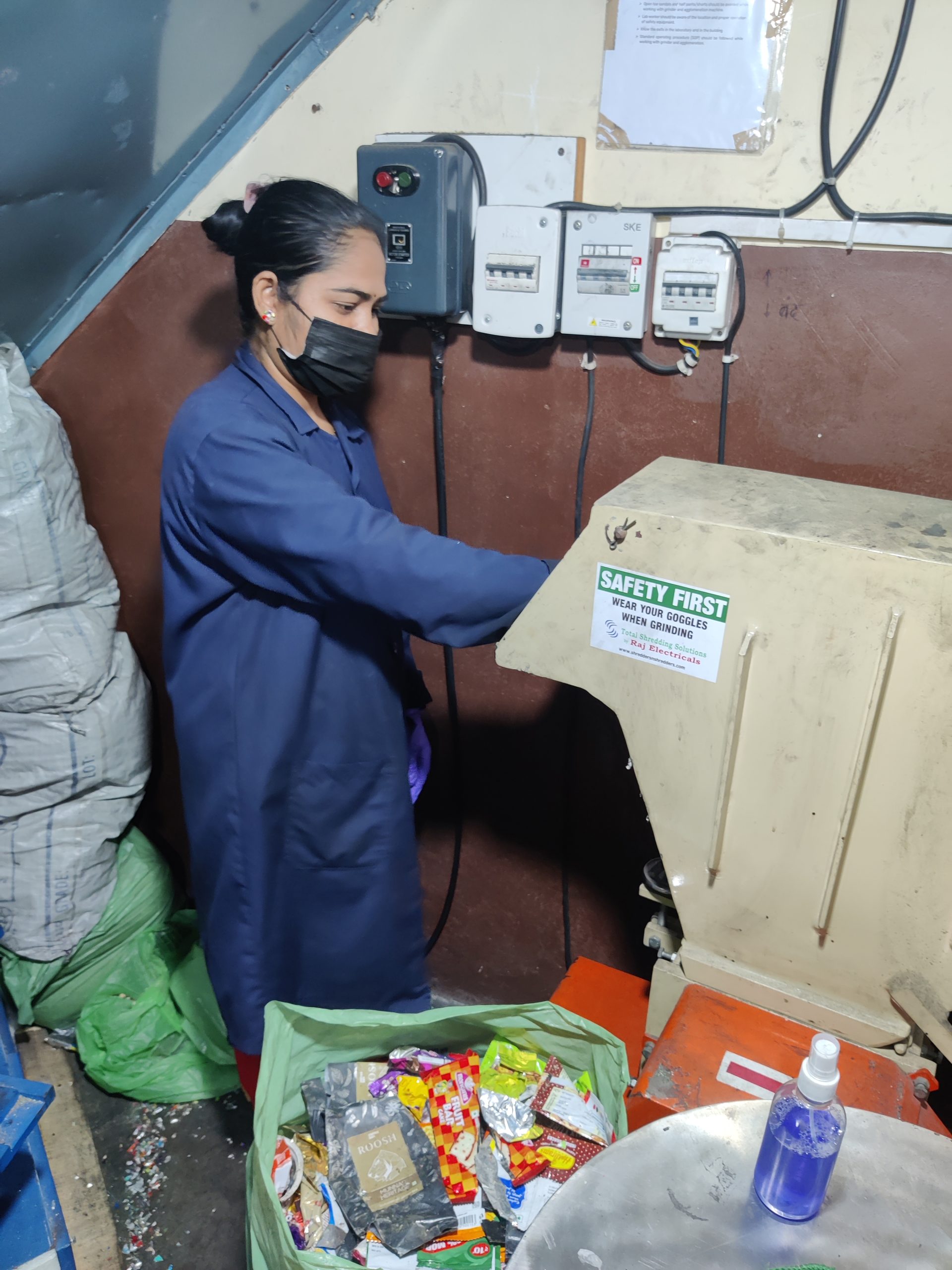
Wastepicker Rani shredding MLP
After more than two years of research and experimentation, he launched the beta version of the world’s first sunglasses made of plastic from used packets of chips under the brand name WITHOUT in February 2023, and he can’t be grateful enough to be making a difference. “The recycling of packets of chips is almost zero globally, and that’s why we wanted to focus on it. We are not here to make money, we are here to solve problems, creating sustainable business models – from the financial, economic, and environmental perspective.” Within six days, they were able to sell over 500 pairs of sunglasses, and are now gearing up for the official launch of the sunglasses in June. “The frames have a QR code inside which you can scan to see where the waste came from and the story of the waste picker and how the product came about,” reveals the entrepreneur who is keen to diversify into coasters, lamps, furniture and eventually sell material.

Recycled sunglasses made by Ashaya
The 34-year-old bookworm, who loves a game of football every Saturday morning, believes that waste is a resource that should be used again and again. “Normalise the reuse of waste without necessarily compromising lifestyle and standard of living.” At the same time, through Ashaya, the entrepreneur wants to “create positive displacement of waste-pickers – access of education, healthcare and access of psychological health.”
Anish’s Ashaya is a perfect example of making a meaningful difference by joining forces of purpose with social objectives.

